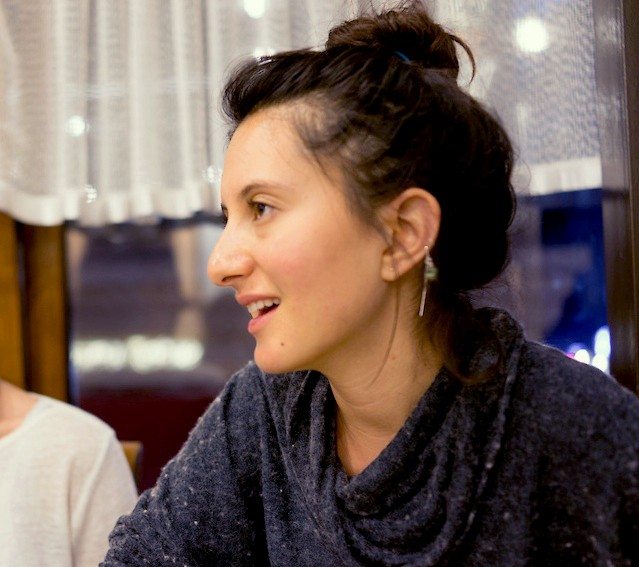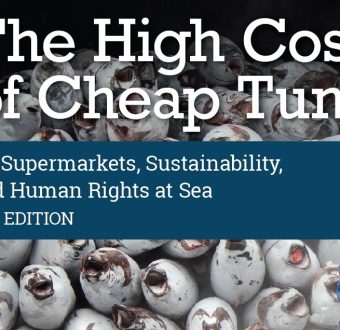After a long Wednesday of classes, I tossed my backpack onto the kitchen table and decided to check my emails one last time before cooking dinner. Scanning my inbox, I noticed one with the subject line, “Did you see this?!” sent by my roommate. Attached was an announcement that in two weeks, our colleges would host a speaker from Monsanto.
Monsanto is a corporation with an unmistakably dirty history and a habit of loop-holing its way past human rights and environmental regulations. The company uses its accumulated wealth to push for legislation like the Monsanto Protection Act, create a revolving door between itself and policy makers, spend exorbitant sums on lobbying, and silence voices of dissent.
In a matter of days, this corporation would be on our campus to dispel its problematic “feed the world” narrative — its latest propagandized message. This incomplete story glosses over the environmental and human rights abuses associated with Monsanto’s products — like the glyphosate in RoundUp — and the industrial agriculture systems that rely on them.
This myth obscures what makes our food system the way it is, yet demands that we trust it.
In short, the perpetuation of this story means the perpetuation of a system that harms people and the environment.
To me, it seemed wrong that a corporation representing these values should be allowed a stage on our campus without giving voice to the entire story. And while thinking about this story, I started to see an opportunity. Monsanto, as influential as it is, had a presence on our campus whether or not we hosted this speaker.
This talk was a chance to spur some very critical conversation; we just had to be strategic.
There were two groups that I wanted to reach: students who already had negative opinions of Monsanto but lacked specific evidence to stand on, and those who were interested in the company as a force for feeding the world or even as a potential future employer. This talk was an opportunity to bridge the gap between the science those peers study on campus and its social, political, and environmental impacts.
My roommates and I spent the following Friday evening baking cookies and cooking dinner for a brainstorming meeting. After two hours conversing on broken wooden chairs and old living room couches, we resolved to protest through information. We’d hand out pamphlets and a set of strategic questions that audience members could pose during the Q&A at the end of the talk.
For the rest of the week, we spent hours consolidating information and concerns into a few concise questions and pamphlets. We made our campus computer lab feel like a newsroom, passing coffee and Google docs back and forth and swiveling around on fancy rolling chairs.
Wednesday rolled around, and standing outside of the lecture hall with pamphlets and questions in hand, I was surprised by my own nerves. When the talk ended, the audience became a sea of raised hands — everyone seemed to have a bone to pick. Informed and critical questions bounced passionately around the room.
I was impressed, both by my peers who had worked so hard in creating oppositional information and by those community members who had attended on their own terms.

Neeka Salmasi on campus at Pitzer College in southern California.
The speaker was also supposed to present that coming Friday at another campus venue, but cancelled due to the audience’s reaction that day.
But not everyone felt the way I did about it. In place of her scheduled talk, concerned students and faculty organized an open conversation on the College’s “commitment to free speech and academic freedom”. I felt weary about it, as we had already been receiving a lot of backlash online for our part in creating the previous audience’s reaction.
The conversation that followed on Friday was hardly ‘open’. My cohorts and I sat in the the middle of students and faculty alike throwing verbal tomatoes as they raged about “coddling the liberal arts education” by “silencing an opposing opinion”. One faculty member even yelled, “Better be thankful you’re not in Canada — hockey team would have taken care of you by now!”
Frustration began to whirl through me. Our purpose had been to inform people about the environmental, political, and social injustices that we were confident this talk would ignore. We wanted to inspire dialogue about our indirect participation in these injustices. In place of discussing these realities, the community around us was busy victimizing the presenter, whom they claimed had been disrespected and silenced.
Even if it were possible for a small group of college students to effectively silence a corporation that raked in $15.9 billion in 2014, that wasn’t what we wanted.
We wanted answers from Monsanto and discussion among our peers.
The true story was manipulated, people were building off of each other’s anger, and worst of all, this whole debacle was distracting from the point we wanted to raise in the first place.
We later had a meeting with one of the professors who had argued against us. Her first words were, “I want to keep emotions out of this. Our role is to discuss data only”.
Here was our problem: this conversation is fundamentally human. It’s full of emotion.
Sure, we could argue for hours over conflicting science about how and why bee populations and soil quality are disintegrating, or how GMOs and pesticide residues may or may not impact human health. But how can we expect to change a world we don’t feel connected to?
“Monsanto isn’t innocent, but they’re just like any company,” dismissed similar voices.
We were being asked to depend on this corporation, allow it to extend its propaganda to our campus, and take no responsibility in the process. When we are stuck in a system that impacts people and ecosystems all over the world, this simple dismissal is not enough.
We have a greater responsibility.
I am demanding from members of my community — those of us who are privileged enough to criticize while benefiting from these violent systems — to allow voices of dissent to start challenging conversations that break us out of the status quo. I am demanding that my institution support this type of innovation by presenting alternatives to the dominant narrative and encouraging students to engage.
Right now, I see a normal where whole, natural foods are only available to a small elite, and are often still grown within a destructive industrial model. I see a normal where one corporation has enough political power to subsidize its patented seed and own virtually all of the crops we grow. I see a normal where 40 percent of food in this country goes to waste, and where communities, neighborhoods and workers worldwide are losing out as they are forced into industrial agriculture.
We are what we eat, and I refuse to passively absorb the destruction involved with our current food system — I need the help of my peers and my institution to create a new normal.
Neeka Salmasi is a senior at Pitzer College, majoring in environmental policy and minoring in philosophy. The views shared here are her own.


